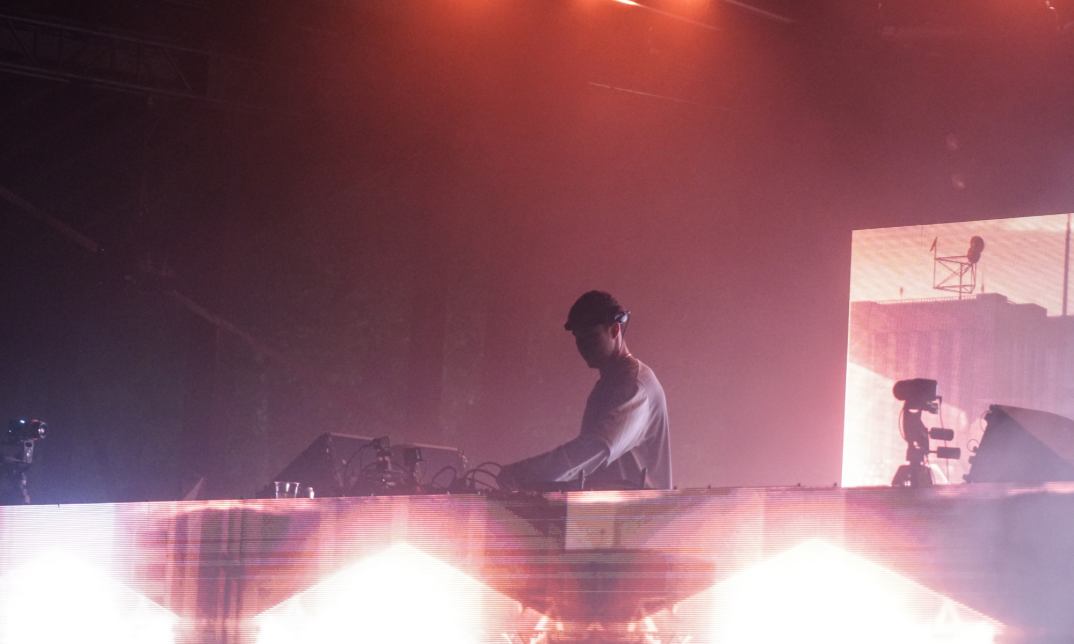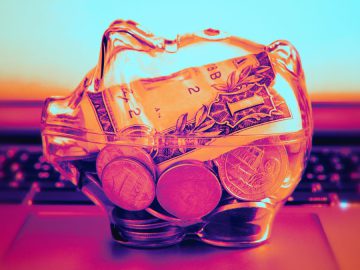How to make money as a music producer has never been an easy topic to takcle. It’s a relatively new job in the grand scheme of things and even in the ten years I’ve been making music consistently and religiously, the definition and context of what a producer does have changed three or four times. As a result, the way artists and producers make money in this space has evolved even more frequently.
In the last ten years that I’ve been making beats, music production has become even more accessible. More plugins and creative tools have made creating amazing-sounding music more accessible than ever. As the culture shifts away from being rock stars on the guitar to aspiring to be the next Skrillex or Armin van Buuren, laptop-based music production has become the new norm for many young musicians. With more people joining the ever-growing community of music producers, figuring out how to make money from it has become crucial.
Oddly enough, the music is often the last thing most artists get paid for. It’s usually everything else about their skill set and technical acumen that pays the bills. With that in mind, we will discuss seven actionable ways to make money from your music and skills as a music producer, helping you quickly and efficiently build a sustainable life doing what you love.
So, let’s dive in.
Sell Music Online
$50 for a beat isn’t bad, but $7 isn’t valuing your time very highly as an artist (depending on how long it took to make the beat I guess)
Selling music online can be tough, especially with so many producers trying to undercut each other. You need to stand out from the crowd and avoid joining the race to the bottom. The market is so saturated that even artists who could sell beats for a lot of money are pricing them super low to stay competitive. It’s a crowded space. Leveraging platforms like BeatStars and edm-ghost-production.com is innovative, but you must find ways to differentiate yourself. Often, selling music online involves offering beats to rappers and hip-hop artists or selling EDM and electronic dance music to DJs. Many websites exist, like BeatStars and GhostProducers.com, for electronic music. However, these platforms are very competitive, similar to sites like Fiverr and SoundBetter.
The two best ways to stand out are by having a long track record of success or by offering your services very cheaply. Sometimes, it can be worth sinking your time into this, but be aware that these sites are often a race to the bottom.
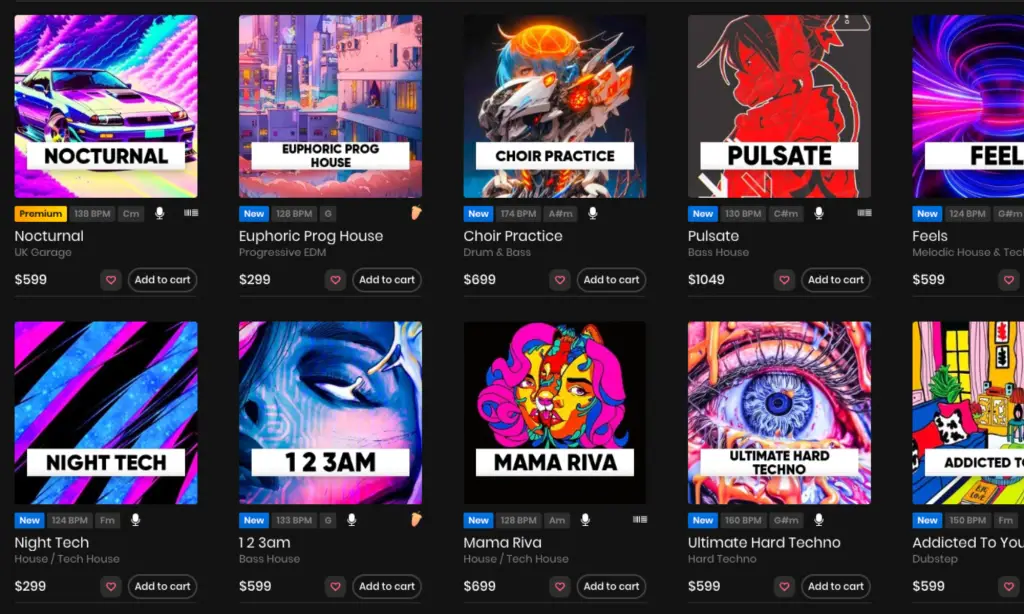
If you’re going this route, whether selling beats or club records, it’s vital to appear as professional as possible. Make your profile look professional, use high-quality images, and write a detailed description. Highlight your accolades and experience so people know they’re getting music from a talented professional. Additionally, when uploading your beats, tag them appropriately. This ensures that anyone looking for a specific beat, like a Drake type beat or a melodic trap song, can easily find it. The last thing you want is for a fantastic song that could sell for $1,000 to get lost in the search results and miss potential buyers.
It can be a common misconception that these online marketplaces are “set and forget,” where you just upload and wait for customers to come. Instead, it’s better to take a proactive approach using conventional marketing tricks or social media to drive more traffic to your Beat page. Creating Instagram content to drive traffic to your sales page on sites like BeatStars or using paid ads can be invaluable. This helps cut through the noise of the many other producers selling similar music on the same platforms.
Production-Based Products and Services
Another way to make money online is by offering production services. The sky is the limit with this, so let’s chat about how producers can sell products or services!
Sample And Preset Packs
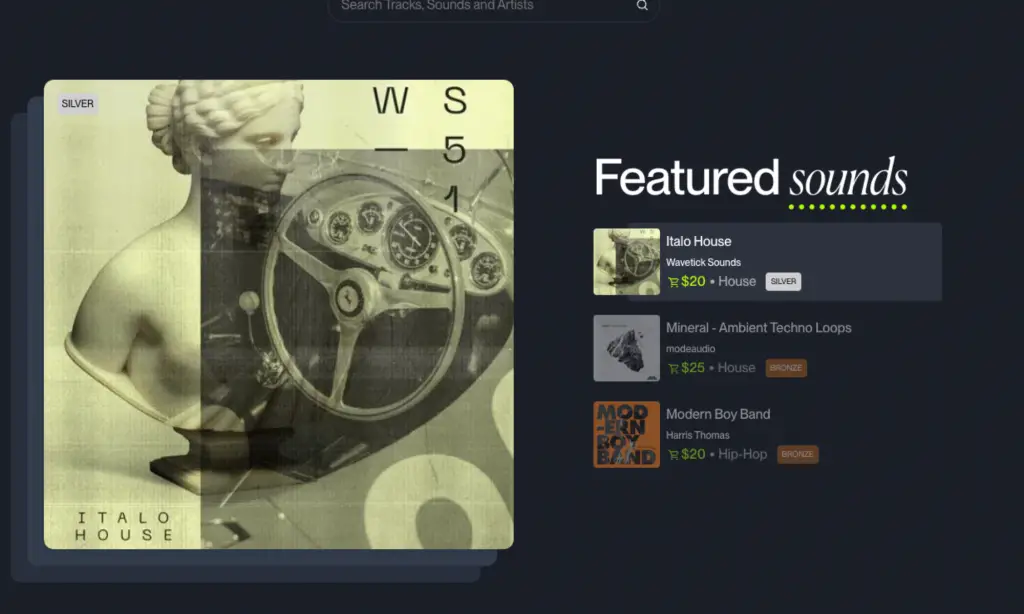
Sample packs are a great way to repurpose the work you’re already doing in the studio. If you’re making drum loops or perfecting synth patches, you can save these and offer them for sale, bringing in extra bucks. However, finding customers can be challenging. Unlike big companies like Production Music Live or Cymatics, you won’t have the same platform, so you’ll need to use old-school marketing methods to promote your sample packs.
One effective strategy is to offer free samples of your premium packs. Share these freebies with Reddit and production communities, or find websites that list free resources like serum presets or drum loops. This can help you collect emails and build a mailing list. Use this growing email list to market and sell the premium versions of your packs. It’s classic email marketing 101, but tailored to the fun music production environment for independent producers like yourself.
Wavetick is an artist-first platform that is a great marketplace for indie sample pack creators to sell their goods! The above screengrab is taken from their website, which removes many of the barriers to starting to sell sample packs, loops, project templates, and more.
Offering Technical Services
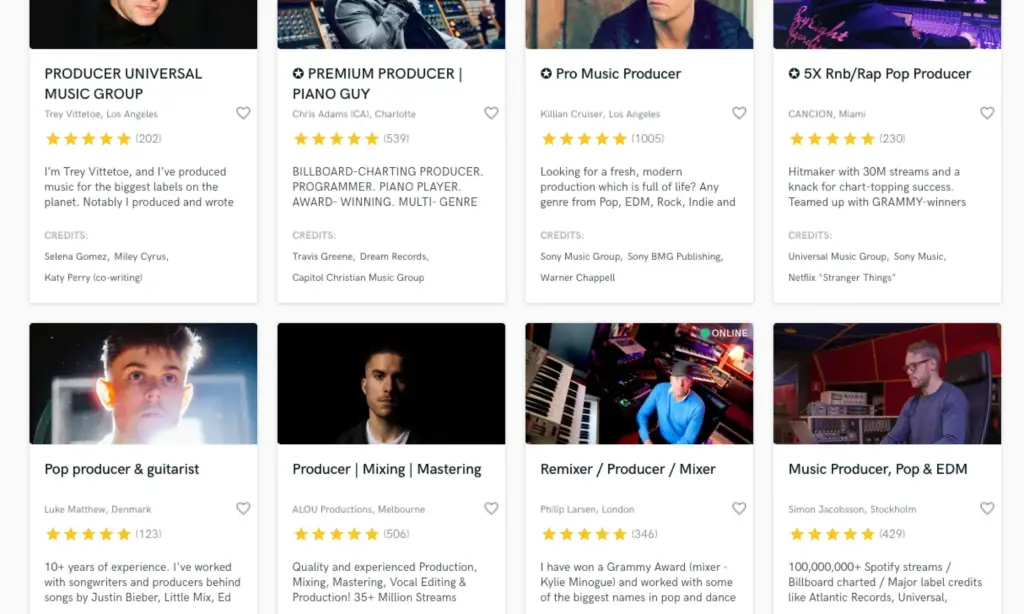 If you want to offer your services on Soundbetter, you’ll be competing with some talented names, but it can be worth it!
If you want to offer your services on Soundbetter, you’ll be competing with some talented names, but it can be worth it!
Another great way to leverage your technical skills in the studio is by offering services like mixing and mastering online. Sites like SoundBetter are fantastic for this, but similar to selling beats and songs, it’s often a race to the bottom. Be prepared for it to take some time before you’re paid what you’re worth.
A good strategy is to use your reputation as a producer to attract clients. Highlight your releases on record labels or your presence in producer communities. Your music releases serve as the best resume for these services. When chatting with producers who are less advanced in their careers, mention your mixing and mastering services if the topic comes up. For example, you could offer mixing for $60 or $200 and mastering for $30. This approach can help you build up your leads and client list.
Teaching Lessons
Following the same formula, teaching lessons can also be a great way to leverage your reputation within the producer community to bring in some extra money. Your music and discography serve as your resume. Producers who admire the labels you’ve released or love a particular song of yours might pay well for one-on-one time with you. This could be remotely or in your studio, where you share your secrets and techniques.
This one-on-one time can be precious for students, helping them identify what’s missing in their workflow or compositions. Your ability to answer their questions and provide guidance can be invaluable for you and the producer you teach.
Remote Studio Work
For many working musicians, being studio musicians is their bread and butter. You can replicate their success as well. You have a lot to offer if you’re a good singer with a full vocal production setup, including a mic and acoustic treatment, or a skilled guitar player with a setup of amps, preamps, and pedals.
Many music producers use software like Kontakt and Omnisphere to recreate vocal chants and guitar lines. They might pay you $50 or $100 to replay their MIDI through your setup, adding a new level of authenticity to their productions. This authenticity can distinguish between a hit record and one that gets lost in the noise.
Whether remotely or in person, offering your authentic, recorded studio work can add significant value to their projects. By adding value, you can also make money for yourself.
Licensing Music
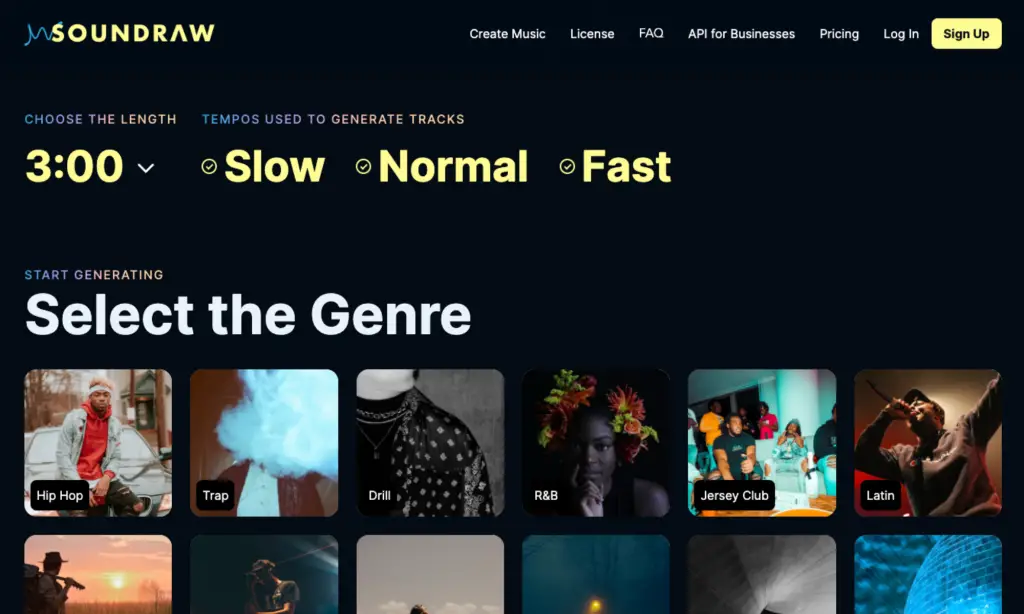 These sound pretty bad now, but in five years they’ll at least sound good enough for Reality TV shows…
These sound pretty bad now, but in five years they’ll at least sound good enough for Reality TV shows…
Now, I have a hot take about licensing, especially the background music on shows like Vanderpump Rules. I think it’s the first type of music where AI-generated beats and instrumentals will dominate in just a few years. Most of the music used in these reality shows is pretty corny and templatized, which is exactly what AI excels at making.
For music producers creating beats for artists or DJs, their work still holds artistic integrity. However, the sync music that shows like Below Deck and Vanderpump Rules rely on might be the first to be replaced by AI in music production. So, tread lightly. This type of music can be very lucrative, but I’m unsure how long it will last. This is just my hot take. Who knows?
It’s crucial to meticulously tag your tracks with relevant keywords and metadata to ensure they surface in targeted searches, maximizing their discoverability and potential for licensing. Moreover, focusing on creating versatile compositions—whether upbeat and dynamic for commercials or ambient and evocative for films—ensures your music meets the diverse needs of media creators worldwide, positioning you for long-term success in the competitive realm of music licensing.
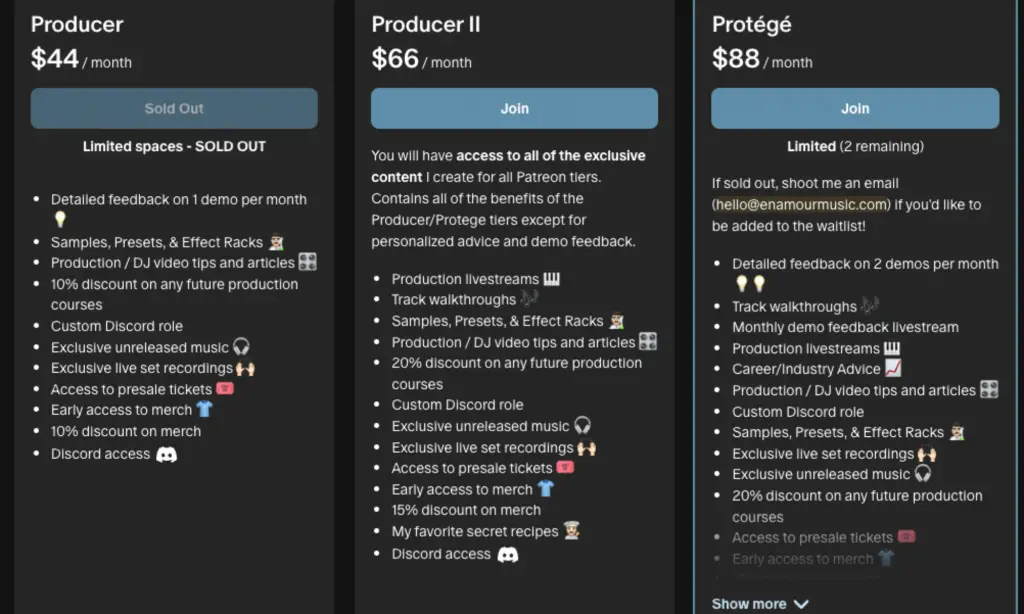 Enamour has a killer Patreon that offers TONs of value to his community
Enamour has a killer Patreon that offers TONs of value to his community
One of the coolest things about being a music producer today is the value of community. There are many spaces where you can build a community online, whether through YouTube, Patreon, or other platforms. Offering value to the music production community can also be quite lucrative.
Patreon is a great way to provide access to you as a music producer. You can teach lessons, offer exclusive deals, or provide special content to your Patreon community, which can help raise your monthly revenue.
Patreon is a great way to provide access to you as a music producer. You can teach lessons, offer exclusive deals, or provide special content to your producer community, raising your monthly revenue. However, it’s crucial to lock in a value that justifies the monthly subscription. Consider what you can offer and the different tiers on Patreon for your community. This requires careful thought and is likely something to leverage later in your career once you have a small community.
Enamour has an amazing Patreon that offers access to him and his knowledge base in exchange for monthly subscriptions. What makes him so popular is a combination of overdelivering on what’s offered each tier and his reputation as one of the most technical producers in the melodic house and club-music space. If he didn’t have hits on some of the top labels in the game, it might be harder to pull off, but he did it easily.
Building a YouTube channel (which I’ll talk more about in a second) can be an excellent way to gather leads and build that community. Once they’re engaged, you can then direct them to your Patreon. If you’re starting out and don’t have the accolades or brand, getting people to pay even $3 or $5 is challenging. It would be best to offer something unique that others aren’t providing and that can’t be found for free elsewhere. It’s something to think about carefully.
YouTube is another excellent way to build a community and brand awareness for your artist project. However, it’s a long game and not something to rely on 100%. Growing other facets of your career can be a side hustle while earning money from YouTube AdSense. While it’s a bit of a gamble whether you’ll become a big content creator, it’s a fantastic way to connect with a broader audience and enhance your overall career.
Building an online community is a long game, but it’s incredibly versatile. You can leverage it for landing gigs, selling sample packs or services, and even attracting sponsorships. YouTube content creators often do their own ad reads because companies sponsor their videos on top of the AdSense revenue.
If you build a community and gain their trust, you can authentically promote products you use through sponsored content. This approach maintains your credibility and provides a fantastic way to make some serious money quickly.
Streaming and Royalties
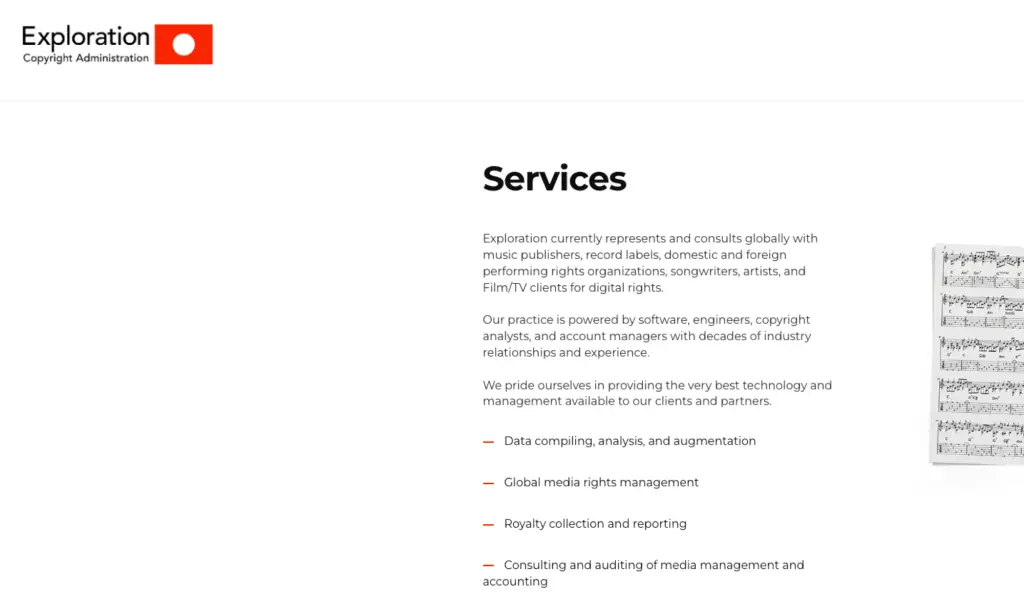 Publishing Administration can be great for entry-level and even established artists.
Publishing Administration can be great for entry-level and even established artists.
Sites and platforms like Spotify have significantly changed the game regarding getting paid for streams, and not for the better. The money from streams is almost laughable now. Even songs with billions of streams only generate a few tens of thousands of dollars. It’s still something to consider, but royalties from streaming don’t pay much.
However, many producers, especially newer ones, often overlook publishing. Signing with PROs like ASCAP and BMI can be a great way to have your music catalog working for you in the background. While this involves legalities and is another aspect of the music industry, it’s worth exploring. If you have a substantial body of work but aren’t leveraging publishing, consider signing with a publishing management service. These services can manage all aspects of publishing and take a cut, but you’ll still be getting some revenue. Many new producers leave this whole revenue stream on the table by only focusing on royalties from streams.
I’ve gone through a company called Explorations, which has done wonders for managing my publishing and copyrights catalog, but they are hardly the only ones who can assist you on the publishing side of things!
Merchandising
Merchandising can be a fantastic way to bring in substantial cash, but you must sell something unique or cool. Think about what your fan base or community would find valuable or stylish. What kind of clothes can you design that are worth the price? Screen printing is a great option, whether at home or outsourcing it, as long as the designs are appealing.
Another awesome idea is selling upcycled merch. Find cool clothes at thrift shops and second-hand stores, and screen print your logo or record label on them. This adds a unique touch, as each piece will be one-of-a-kind. Additionally, offering mixtapes or pressing your music onto vinyl can be a sweet piece of merchandise. Fans will appreciate having something tangible, and it makes for cool decorations!
However, don’t half-bake the merchandise. People will be spending good money on these items, and they want something high-quality that represents you. Avoid cheap, poorly-made products from third-party websites, which can cheapen the experience and turn fans off in the long run. Create something meaningful and well-made to connect with your fan base truly.
Live Performances and DJ Gigs
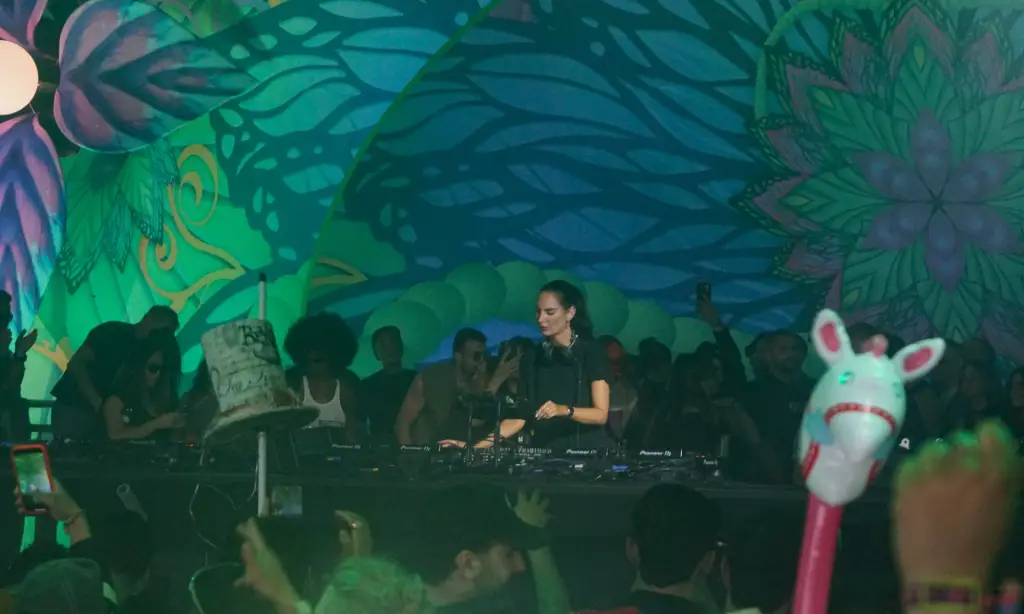
Live performances and gigs are often assumed to be the main way artists make a living these days, and it’s why many producers and musicians get into the craft—they want to perform live. It can be one of the best-paying ways to make money through your music. However, it has downsides, such as hectic touring schedules and irregular sleep patterns. But if you’re willing to deal with that, live performances can be very lucrative.
So, why didn’t I cover this earlier in this article? Because it’s usually the result of everything else mentioned above coming together first. So let me break it down a bit more…
So much goes into making and breaking a successful touring artist, and focusing only on Spotify streams is a severe miscalculation. On Spotify, most people listen to your music as part of a broader playlist, often in the background. While they might love your song, they don’t necessarily connect with you as an artist. Therefore, having 200,000 streams doesn’t mean those 200,000 listeners are real fans or willing to buy tickets to your show.
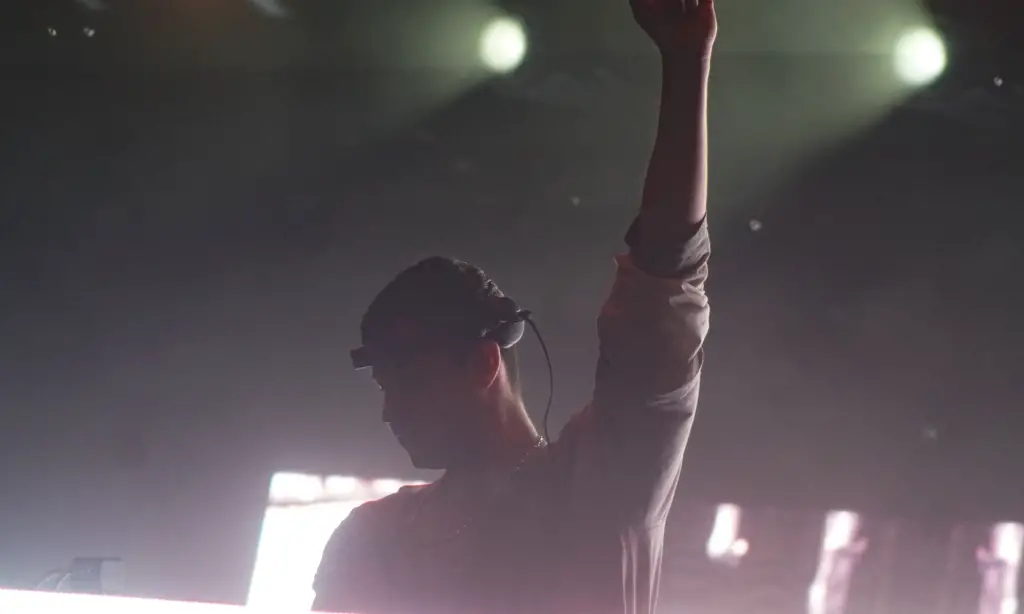 There can only be so many John Summits in this industry and many who want to be him likely don’t know the realities of the lifestyle.
There can only be so many John Summits in this industry and many who want to be him likely don’t know the realities of the lifestyle.
Furthermore, having a song signed to a hit label or support from top artists in your niche doesn’t guarantee a career as a touring musician. There’s so much involved in transitioning from a working musician to a touring artist, and only so many spots in the upper echelon of artists, many of which are held by those who have been doing it for twenty years or more. It would be best if you were realistic about your dreams, aspirations, and commitment to making that jump to full-time touring, and also consider the impact it will have on your life. There are many other ways to make a sustainable living as a musician without focusing solely on live touring and big festival gigs.
A great way to take more ownership of your trajectory as an artist in the live performance and gig space is to start throwing your own shows in your local market and city. It takes a lot of legwork, upfront investment, and perseverance, as it might take months or even years to build a dedicated fan base. However, once you build a sizable following in your local party scene, you can use that as leverage for other gigs in your career. You might trade spots with a neighboring city promoter, where you play their gig and they play yours. Being a well-known promoter also keeps you in contact with other music industry professionals like booking agents, managers, and artists.
This gives you something valuable to offer and opens doors for more opportunities, unlike being another producer with 200,000 streams but no local recognition.
How It All Comes Together
At this stage in the article, it’s important to reflect on everything we’ve covered and be transparent about the reality: no single revenue stream will likely cover all your bills. I make my living by producing music, teaching lessons, running record labels, managing this website, and other random music industry tasks that come my way. Together, these create a sustainable career for me and my family. It’s not just one thing that brings in all the income.
Becoming a music producer or in the music industry quickly becomes more of a lifestyle than a nine-to-five job. Like most entrepreneurial, self-driven industries, you rarely have time off. You’re either working on music or thinking about and preparing to work on music in some way. This is where the value of your network becomes crucial.
One of the best aspects of being a music producer in 2024 is that while no one will do the work for you, there are people who can help and support you. Networking with other producers and industry professionals is invaluable. Whether you’re meeting producers on Reddit or Discord, connecting with people at clubs or in the nightlife scene, or collaborating with musicians in your community, all the relationships you build and the skills you develop will compound over time in all of the ways that I’ve outlined in this article.
As you live this life and grow as a working music producer, even if you’re not earning as much as you’d like, all the connections and community you foster will slowly come together. If you stay committed, this will lead to a sustainable and fulfilling life, making the music you love.

